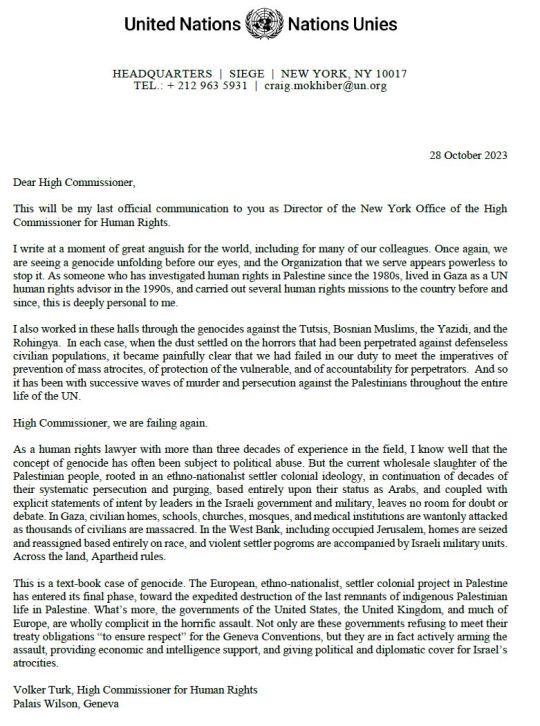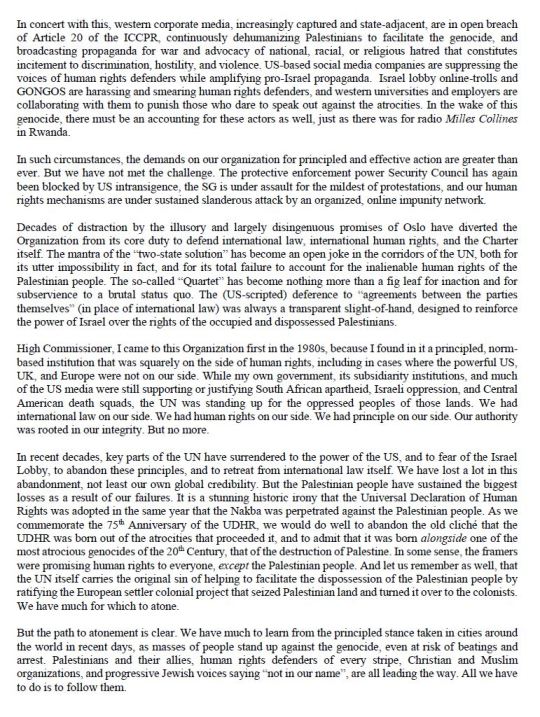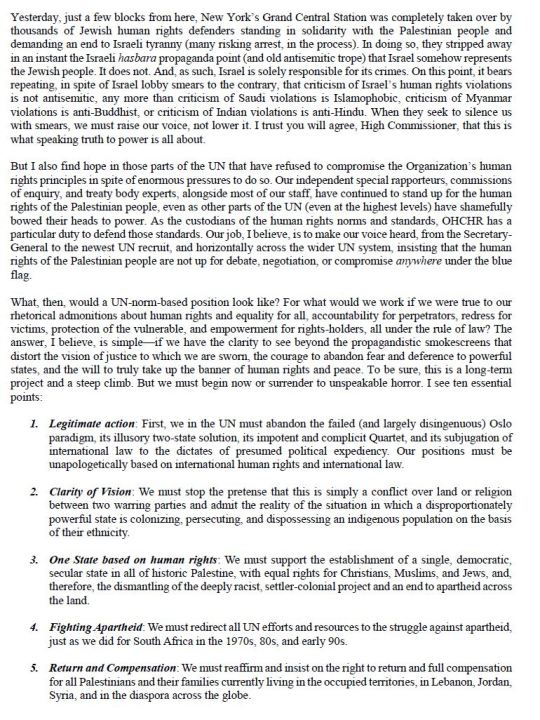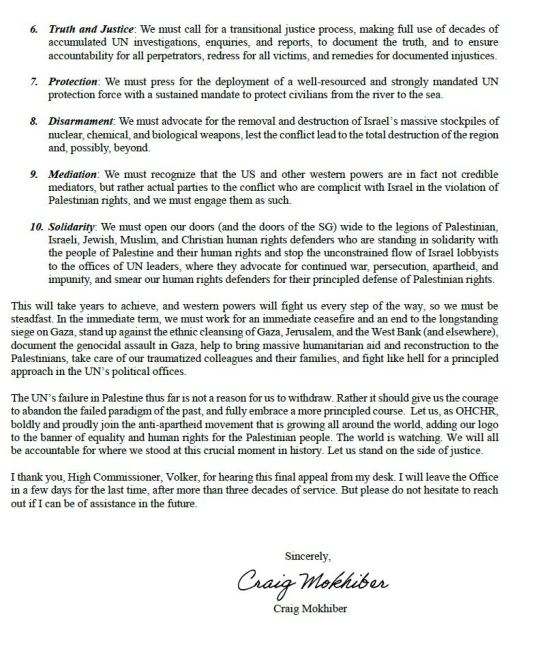#United Nations Office at Geneva
Explore tagged Tumblr posts
Text
2025 marks the silver jubilee of the celebration of mother language day.

Languages, whether spoken by hundreds of millions, or just by a few thousand native speakers, connect people and are inseparably linked with the respective culture. However, according to a UNESCO estimate, one language disappears every two weeks – an irreparable loss for our collective cultural heritage. The International Day of Mother Language is a worldwide annual observance to promote awareness of linguistic and cultural diversity and multilingualism. The day was proclaimed by the General Conference of UNESCO in November 1999. 2025 marks the silver jubilee of the celebration of mother language day. The Division of Conference Management at the United Nations Office at Geneva joins these celebrations by highlighting the cultural wealth and language abilities of its staff and partners.
#UN Geneva#international mother language day#21 february#languages#linguists#lingustics#multilingual cultural performances#Division of Conference Management#united nations office at geneva#language abilities#languages matter
9 notes
·
View notes
Text
4th Meeting, Social Forum 2024.
15h00-15h45 Domestic and International Private Business and Finance
Moderator: Ms. Özge Aydoğan, Director, Beyond Lab
Mr. Olivier De Schutter, Special Rapporteur on Extreme Poverty and Human Rights, Leveraging Private Business and Finance for the Alleviation of Global Poverty
Mr. Veaceslav Sterbert, Managing Partner at Exportza, Moldova, Sharing Stories and Experiences on Access to Finance in the Republic of Moldova
Mr. Anand Priya Deo, Ananda Foundation, India, Financial Inclusion, Grameen Microfinance, Women's Empowerment and Livelihoods among Tribal and Indigenous Communities in India
Mr. Jason Pegat-Toquet, Advisor, International Organization of Employers, The Role of Multistakeholder and Public-Private Partnerships
Ms. Yixuan Peng, Ph.D. Candidate, Law School of Huazhong University of Science and Technology, China, Human Rights Responsibilities of Digital Business Enterprises
15h45-16h30 Interactive Dialogue
16h30-17h45 Crafting Recommendations to FFD4, with a focus on Least Developed Countries, Landlocked Developing Countries and Small Island Developing States Moderator: Mr. Mihir Kanade, Professor and Head, Department of International Law and Director, Human Rights Centre, University for Peace (UPEACE), San José, Costa Rica
H.E. Ms. Patricia Hermanns, Ambassador and Permanent Representative of the Commonwealth of the Bahamas to the United Nations in Geneva, Sustainable Finance for Caribbean and other Small Island Developing States
Ms. Bhumika Muchhala,Political Economist, Policy Advocate and Research Scholar, New School, New York, Addressing Systemic Issues for Justice and Equity in Global Governance
Mr. Unubat Narantsatsralt, Student Researcher, International Institute in Geneva, Sustainable Financing for Landlocked Developing Countries – From the Perspective of Mongolia
Ms. Gladys Cecilia Hernandez, Deputy Director, Centro de Investigaciones de la Economia Mondial, Cuba, Proposals for a New International Financial Architecture
Ms. Jane Nalunga, Executive Director, SEATINI, Uganda, FFD Africa Core Group, and Coordination Group of the Civil Society FFD Mechanism – Ensuring Effective Outcomes for African Countries, Least Developed Countries and All Human Rights for All at FFD4
17h45-18h00 Closing Remarks
H.E. Marc Bichler, Chairperson-Rapporteur of the Social Forum
The Social Forum 2024 focuses on the contribution of financing for development to the advancement of all Human Rights for all.
Watch the 4th meeting, Social Forum 2024!

#Domestic resources#financing for sustainable development#investments for sustainable development#ohchr#human rights for all#united nations office at geneva#palais des nations#social forum#Justice and Equity#effective outcomes#poverty alleviation
0 notes
Text
4th Meeting, 2024 Amended Protocol II Group of Experts (CCW).
Convention on Certain Conventional Weapons – Amended Protocol II Group of Experts
Watch 4th Meeting, 2024 Amended Protocol II Group of Experts (CCW)!

#plenary meetings#unoda#disarmament#convention on certain conventional weapons#conventional ammunition#conventional weapons#united nations office for disarmanent affairs#united nations office at geneva#group of experts
0 notes
Text

Source
14 notes
·
View notes
Text
2nd meeting, 7th Intersessional Meeting of the Human Rights Council on Human Rights and the 2030 Agenda.
Human Rights Council on Human Rights and the 2030 Agenda.
15:00 - 16:50: Panel 2, Applying a Human Rights lens to going beyond GDP
16:50 - 17:00: Closing
Related Documents for More information,
Watch the 2nd meeting, 7th Intersessional Meeting of the Human Rights Council on Human Rights and the 2030 Agenda!

#human rights#global debt architecture#debt#un human rights council#united nations office in geneva#unog#agenda 2030#sdgs#sustainable development#intersessional meeting
1 note
·
View note
Text
Launch of the Cluster Munitions Monitor 2024 report.
Watch the United Nations Institute for Disarmament Research (UNIDIR) - Press Conference: Cluster Munitions Monitor 2024.
Speakers:
· Charles Bechara, ICBL-CMC Communications and Media Manager
· Mary Wareham, Cluster Munition Monitor 2024 Ban Policy Editor
· Katrin Atkins, Cluster Munition Monitor 2024 Impact Team Senior Researcher
· Loren Persi, Cluster Munition Monitor 2024 Impact Team Lead
Launch of the Cluster Munitions Monitor 2024 report

#United Nations Institute for Disarmament Research#press conference#UNIDIR#cluster munitions#UNOG#United nations office in Geneva
1 note
·
View note
Text
Reaffirm that civilians and aid workers caught in conflicts are not a target.

At UN Geneva; On August 19th at 4:00 pm CET a commemorative event will be held at the Palais des Nations, Building E, 3rd Floor; Outside the Human Rights and Alliance of Civilizations Room (Room XX). The Humanitarian partners are coming together to reaffirm that civilians and aid workers caught in conflicts are not a target and to honor humanitarians who strive to meet ever-growing global needs. Register to participate to the event!
#aid workers#humanitarian#un geneva#wreath laying ceremony#candle lightning ceremony#minute of silence#actforhumanity#unrwa#unocha#united nations information service#united nations office in geneva#united nations ocha#world humanitarian day#19 august
0 notes
Text
16th Meeting, Preparatory Committee for NPT Review Conference 2026.
The Preparatory Committee for the 2026 Review Conference of the Parties to the Treaty on the Non-Proliferation of Nuclear Weapons (NPT) will hold its second session from 22 July to 2 August 2024 at the Palais des Nations in Geneva, Switzerland. This will be the second of three planned sessions that will be held prior to the 2026 Review Conference.
The Preparatory Committee, open to all States parties to the Treaty, is responsible for addressing substantive and procedural issues related to the Treaty and the forthcoming Review Conference. The Chair of the second session is Ambassador Akan Rakhmetullin of Kazakhstan. UN Web TV
Watch the 16th Meeting, Preparatory Committee for NPT Review Conference 2026!

#Parties to the Treaty on the Non-Proliferation of Nuclear Weapons (NPT)#plenary sessions#nuclear weapons#npt#non proliferation treaty#non proliferation#preparatory committee#un geneva#united nations office in geneva#palais des nations#treaty on the prohibition of nuclear weapons#unoda#non nuclear weapon states#nuclear explosive devices#states parties
0 notes
Text
Progress and priorities for ending abuse of older people during the United Nations Decade of Healthy Ageing.

World Elder Abuse Awareness Day (WEAAD) to be held in Geneva by WHO, UN-DESA and INPEA.
The online webinar will take place Monday 17 June 2024 from 14.30 to 16.00 CET.
The webinar will provide an update on progress towards addressing the priorities in Tackling abuse of older people - Five priorities for the United Nations Decade of Healthy Ageing (2021–2030)
Please register for the webinar here, where you will also find more information.
Flyer Programme

#world elder abuse awareness day#15 june#older persons#elder abuse#webinars#international decade#elderly#virtual event#un geneva#united nations office in geneva
0 notes
Text
Show your support for multilingualism!

The photobooth will be set up between 17 and 28 February during working hours.
youtube
Directions: enter through door 40 (E-Building, 2nd floor). Move to the first floor towards the Serpent Bar. The photobooth is located close to the Cagi cultural kiosk.
Everyone working at or visiting the United Nations Office at Geneva has the opportunity to take a picture showcasing the languages they speak.
Take your colleagues for a group picture and demonstrate the linguistic diversity in your team!

#language abilities#photoboot#international mother language day#21 february#united nations office at geneva#Division of Conference Management#languages matter#multiligualism#multilingual#multilingual learning#multilingualism#mother tongue#Youtube
0 notes
Text
3rd Meeting, Social Forum 2024.
The Social Forum 2024 focuses on the contribution of financing for development to the advancement of all Human Rights for all.
10h00-10h45 Roundtable: Debt and Debt Sustainability
Moderator: Ms. Sakshi Rai, Sustainable Development Section, OHCHR
Mr. Ugo Panizza, Professor of Economics and Head of Department and Pictet Chair in Finance and Development, Graduate Institute of International and Development Studies, Geneva, Foreign Debt and Development Finance
Mr. Grieve Chelwa, Associate Professor of Political Economy, Chair of Social Sciences, The Africa Institute / African Sovereign Debt Justice Network, Global Studies University, Debt Restructuring - The Experience of Zambia
Mr. Juan Pablo Bohoslavsky, Senior Researcher, National and Technical Research Council, Argentina and Consultant for the UN Economic Commission for Latin America and the Caribbean (ECLAC), OHCHR and UNDP, Why and How Human Rights in Debt Sustainability Analysis (DSA)
Ms. Iolanda Fresnillo, Policy and Advocacy Manager for Debt Justice, Eurodad, Climate Change and Debt Sustainability Analysis
Ms. Penelope Hawkins, Senior Economic Affairs Officer, Debt and Development Finance Branch, UNCTAD, Debt and Fiscal Space for Human Rights and Sustainable Development
10h45-11h30 Interactive dialogue
11h30-12h15 Domestic Resource Mobilization
Moderator: Mr. Serges Kamga, Dean, Faculty of Law, University of the Free State, South Africa
H.E. Mr. Sharaf Sheralizoda, Permanent Representative of Tajikistan to the United Nations Office at Geneva, Domestic Resource Mobilization and Investment for Sustainable Development
Ms. Chenai Mukumba, Executive Director, Tax Justice Network Africa, Tax Justice
Mr. Abdul Muheet Chowdhary / Tax Initiative, South Centre, Geneva, Lessons Learned and Good Practices – In the Experience of the South Centre Tax Initiative
Mr. Gerard Kamga, Senior Lecturer, Faculty of Law, University of the Free State, South Africa, Illicit Financial Flows from Africa and the Financing of Development
Ms. Anu Peltola, Director of Statistics, UNCTAD, Tracking and Measuring Illicit Financial Flows for Domestic Resource Mobilization and the Realization of Human Rights
12h15-13h00 Interactive Dialogue
Watch the 3rd Meeting, Social Forum 2024

#social progress#un human rights council#financing for sustainable development#human rights for all#interactive dialogue#un statistics#unctad#South Centre Tax Initiative#United Nations Office at Geneva#Domestic Resource Mobilization#investments for sustainable development#ohchr#debt#Debt sustainability
0 notes
Text
3rd Meeting, 2024 Amended Protocol II Group of Experts (CCW).
Convention on Certain Conventional Weapons – Amended Protocol II Group of Experts.
Watch the 3rd Meeting, 2024 Amended Protocol II Group of Experts (CCW)

#convention on certain conventional weapons#protocol v#group of experts#unoda#united nations office for disarmanent affairs#unog#united nations office at geneva#conventional ammunition#conventional arms#conventional weapons#disarmament#plenary meetings
0 notes
Text
Under the theme “Youth Together for a Better World”

On today’s Chinese Language Day, under the theme “Youth Together for a Better World”, set sail for China in this animated video brought to you by China Media Group together with the United Nations Office at Geneva (UNOG) as part of its Cultural Activities Programme, and the Permanent Mission of China to the UN in Geneva. Since 2021, UNOG, the Permanent Mission of China and the China Media Group have been co-hosting annual cultural events to mark this day. The purpose of the UN's language days is to celebrate multilingualism and cultural diversity, as well as to promote equal use of all six official languages throughout the Organization.
youtube
#China Media Group#United Nations Office at Geneva (UNOG)#Cultural Activities Programme#permanent Mission of China to the UN in Geneva#chinese language day#cultural events#Youtube
0 notes
Text
The director of the New York Office of the High Commissioner for Human Rights of the UN (UN OHCHR), Craig Mokhiber, has resigned in a letter dated 28 October 2023
the resignation letter can be found embedded in this tweet by Rami Atari (@.Raminho) dated 31 October 2023.
The letters are here:




Transcription:
United Nations | Nations Unies
HEADQUARTERS I SIEGE I NEW YORK, NY 10017
28 October 2023
Dear High Commissioner,
This will be my last official communication to you as Director of the New York Office of the High Commissioner for Human Rights.
I write at a moment of great anguish for the world, including for many of our colleagues. Once again, we are seeing a genocide unfolding before our eyes, and the Organization that we serve appears powerless to stop it. As someone who has investigated human rights in Palestine since the 1980s, lived in Gaza as a UN human rights advisor in the 1990s, and carried out several human rights missions to the country before and since, this is deeply personal to me.
I also worked in these halls through the genocides against the Tutsis, Bosnian Muslims, the Yazidi, and the Rohingya. In each case, when the dust settled on the horrors that had been perpetrated against defenseless civilian populations, it became painfully clear that we had failed in our duty to meet the imperatives of prevention of mass atrocites, of protection of the vulnerable, and of accountability for perpetrators. And so it has been with successive waves of murder and persecution against the Palestinians throughout the entire life of the UN.
High Commissioner, we are failing again.
As a human rights lawyer with more than three decades of experience in the field, I know well that the concept of genocide has often been subject to political abuse. But the current wholesale slaughter of the Palestinian people, rooted in an ethno-nationalist settler colonial ideology, in continuation of decades of their systematic persecution and purging, based entirely upon their status as Arabs, and coupled with explicit statements of intent by leaders in the Israeli government and military, leaves no room for doubt or debate. In Gaza, civilian homes, schools, churches, mosques, and medical institutions are wantonly attacked as thousands of civilians are massacred. In the West Bank, including occupied Jerusalem, homes are seized and reassigned based entirely on race, and violent settler pogroms are accompanied by Israeli military units. Across the land, Apartheid rules.
This is a text-book case of genocide. The European, ethno-nationalist, settler colonial project in Palestine has entered its final phase, toward the expedited destruction of the last remnants of indigenous Palestinian life in Palestine. What's more, the governments of the United States, the United Kingdom, and much of Europe, are wholly complicit in the horrific assault. Not only are these governments refusing to meet their treaty obligations "to ensure respect" for the Geneva Conventions, but they are in fact actively arming the assault, providing economic and intelligence support, and giving political and diplomatic cover for Israel's atrocities.
Volker Turk, High Commissioner for Human Rights Palais Wilson, Geneva
In concert with this, western corporate media, increasingly captured and state-adjacent, are in open breach of Article 20 of the ICCPR, continuously dehumanizing Palestinians to facilitate the genocide, and broadcasting propaganda for war and advocacy of national, racial, or religious hatred that constitutes incitement to discrimination, hostility, and violence. US-based social media companies are suppressing the voices of human rights defenders while amplifying pro-Israel propaganda. Israel lobby online-trolls and GONGOS are harassing and smearing human rights defenders, and western universities and employers are collaborating with them to punish those who dare to speak out against the atrocities. In the wake of this genocide, there must be an accounting for these actors as well, just as there was for radio Mules Collins in Rwanda.
In such circumstances, the demands on our organization for principled and effective action are greater than ever. But we phave not met the challenge. The protective enforcement power Security Council has again been blocked by US intransigence, the SG [UN Secretary General] is under assault for the mildest of protestations, and our human rights mechanisms are under sustained slanderous attack by an organized, online impunity network.
Decades of distraction by the illusory and largely disingenuous promises of Oslo have diverted the Organization from its core duty to defend international law, international human rights, and the Charter itself. The mantra of the "two-state solution" has become an open joke in the corridors of the UN, both for its utter impossibility in fact, and for its total failure to account for the inalienable human rights of the Palestinian people. The so-called "Quartet" has become nothing more than a fig leaf for inaction and for subservience to a brutal status quo. The (US-scripted) deference to "agreements between the parties themselves" (in place of international law) was always a transparent slight-of-hand, designed to reinforce the power of Israel over the rights of the occupied and dispossessed Palestinians.
High Commissioner, I came to this Organization first in the 1980s, because I found in it a principled, norm-based institution that was squarely on the side of human rights, including in cases where the powerful US, UK, and Europe were not on our side. While my own government, its subsidiarity institutions, and much of the US media were still supporting or justifying South African apartheid, Israeli oppression, and Central American death squads, the UN was standing up for the oppressed peoples of those lands. We had international law on our side. We had human rights on our side. We had principle on our side. Our authority was rooted in our integrity. But no more.
In recent decades, key parts of the UN have surrendered to the power of the US, and to fear of the Israel Lobby, to abandon these principles, and to retreat from international law itself. We have lost a lot in this abandonment, not least our own global credibility. But the Palestinian people have sustained the biggest losses as a result of our failures. It is a stunning historic irony that the Universal Declaration of Human Rights was adopted in the same year that the Nakba was perpetrated against the Palestinian people. As we commemorate the 75th Anniversary of the UDHR, we would do well to abandon the old cliché that the UDHR was born out of the atrocities that proceeded it, and to admit that it was born alongside one of the most atrocious genocides of the 20th Century, that of the destruction of Palestine. In some sense, the framers were promising human rights to everyone, except the Palestinian people. And let us remember as well, that the UN itself carries the original sin of helping to facilitate the dispossession of the Palestinian people by ratifying the European settler colonial project that seized Palestinian land and turned it over to the colonists. We have much for which to atone.
But the path to atonement is clear. We have much to learn from the principled stance taken in cities around the world in recent days, as masses of people stand up against the genocide, even at risk of beatings and arrest. Palestinians and their allies, human rights defenders of every stripe, Christian and Muslim organizations, and progressive Jewish voices saying "not in our name", are all leading the way. All we have to do is to follow them.
Yesterday, just a few blocks from here, New York's Grand Central Station was completely taken over by thousands of Jewish human rights defenders standing in solidarity with the Palestinian people and demanding an end to Israeli tyranny (many risking arrest, in the process). In doing so, they stripped away in an instant the Israeli hasbara propaganda point (and old antisemitic trope) that Israel somehow represents the Jewish people. It does not. And, as such, Israel is solely responsible for its crimes. On this point, it bears repeating, in spite of Israel lobby smears to the contrary, that criticism of Israel's human rights violations is not antisemitic, any more than criticism of Saudi violations is Islamophobic, criticism of Myanmar violations is anti-Buddhist, or criticism of Indian violations is anti-Hindu. When they seek to silence us with smears, we must raise our voice, not lower it. I trust you will agree, High Commissioner, that this is what speaking truth to power is all about.
But I also find hope in those parts of the UN that have refused to compromise the Organization's human rights principles in spite of enormous pressures to do so. Our independent special rapporteurs, commissions of enquiry, and treaty body experts, alongside most of our staff, have continued to stand up for the human rights of the Palestinian people, even as other parts of the UN (even at the highest levels) have shamefully bowed their heads to power. As the custodians of the human rights norms and standards, OHCHR. has a particular duty to defend those standards. Our job, I believe, is to make our voice heard, from the Secretary-General to the newest UN recruit, and horizontally across the wider UN system, incisting that the human rights of the Palestinian people are not up for debate, negotiation, or compromise anywhere under the blue flag.
What, then, would a UN-norm-based position look like? For what would we work if we were true to our rhetorical admonitions about human rights and equality for all, accountability for perpetrators, redress for victims, protection of the vulnerable, and empowerment for rights-holders, all under the rule of law? The answer, I believe, is simple—if we have the clarity to see beyond the propagandistic smokescreens that distort the vision of justice to which we are sworn, the courage to abandon fear and deference to powerful states, and the will to truly take up the banner of human rights and peace. To be sure, this is a long-term project and a steep climb. But we must begin now or surrender to unspeakable horror. I see ten essential points:
Legitimate action: First, we in the UN must abandon the failed (and largely disingenuous) Oslo paradigm, its illusory two-state solution, its impotent and complicit Quartet, and its subjugation of international law to the dictates of presumed political expediency. Our positions must be unapologetically based on international human rights and international law.
Clarity of Vision: We must stop the pretense that this is simply a conflict over land or religion between two warring parties and admit the reality of the situation in which a disproportionately powerful state is colonizing, persecuting, and dispossessing an indigenous population on the basis of their ethnicity.
One State based on human rights: We must support the establishment of a single, democratic, secular state in all of historic Palestine, with equal rights for Christians, Muslims, and Jews, and, therefore, the dicmantling of the deeply racist, settler-colonial project and an end to apartheid across the land.
Fighting Apartheid: We must redirect all UN efforts and resources to the struggle against apartheid, just as we did for South Africa in the 1970s, 80s, and early 90s.
Return and Compensation: We must reaffirm and insist on the right to return and full compensation for all Palestinians and their families currently living in the occupied territories, in Lebanon, Jordan, Syria, and in the diaspora across the globe.
Truth and Justice: We must call for a transitional justice process, making full use of decades of accumulated UN investigations, enquiries, and reports, to document the truth, and to ensure accountability for all perpetrators, redress for all victims, and remedies for documented injustices.
Protection: We must press for the deployment of a well-resourced and strongly mandated UN protection force with a sustained mandate to protect civilians from the river to the sea.
Disarmament: We must advocate for the removal and destruction of Israel's massive stockpiles of nuclear, chemical, and biological weapons, lest the conflict lead to the total destruction of the region and, possibly, beyond.
Mediation: We must recognize that the US and other western powers are in fact not credible mediators, but rather actual parties to the conflict who are complicit with Israel in the violation of Palestinian rights, and we must engage them as such.
Solidarity: We must open our doors (and the doors of the SG) wide to the legions of Palestinian, Israeli, Jewish, Muslim, and Christian human rights defenders who are standing in solidarity with the people of Palestine and their human rights and stop the unconstrained flow of Israel lobbyists to the offices of UN leaders, where they advocate for continued war, persecution, apartheid, and impunity, and smear our human rights defenders for their principled defense of Palestinian rights.
This will take years to achieve, and western powers will fight us every step of the way, so we must be steadfast. In the immediate term, we must work for an immediate ceasefire and an end to the longstanding siege on Gaza, stand up against the ethnic cleansing of Gaza, Jerusalem, and the West Bank (and elsewhere), document the genocidal assault in Gaza, help to bring massive humanitarian aid and reconstruction to the Palestinians, take care of our traumatized colleagues and their families, and fight like hell for a principled approach in the UN's political offices.
The UN's failure in Palestine thus far is not a reason for us to withdraw. Rather it should give us the courage to abandon the failed paradigm of the past, and fully embrace a more principled course. Let us, as OHCHR, boldly and proudly join the anti-apartheid movement that is growing all around the world, adding our logo to the banner of equality and human rights for the Palestinian people. The world is watching. We will all be accountable for where we stood at this crucial moment in history. Let us stand on the side of justice.
I thank you, High Commissioner, Volker, for hearing this final appeal from my desk. I will leave the Office in a few days for the last time, after more than three decades of service. But please do not hesitate to reach out if I can be of assistance in the future.
Sincerely,
Craig Mokhiber
End of transcription.
Emphasis (bolding) is my own. I have added links, where relevant, to explanations of concepts the former Director refers to.
#Israel#Palestine#October 2023#28 October 2023#United Nations#Described#Long post#I’ll add more links to the things he is talking about later
15K notes
·
View notes
Text
Young Activists Summit 2024.
The 2024 Young Activists Summit 'Go far, go together' will be held on 19 November 2024 at the United Nations in Geneva, Switzerland and online.
Watch the Young Activists Summit 2024!

Bengali interpretation can be found on the Original Audio Track বাংলা অডিও অরিজিনাল
#Young Activists#young people#Go far go together#united nations office in geneva#unog#children#summit
0 notes
Text
15th Nelson Mandela World Human Rights Moot Court competition.

The Fifteenth Nelson Mandela World Human Rights Moot Court Competition adopts a hybrid format, with the in-person final rounds scheduled to take place at the Palais des Nations in Geneva, Switzerland from 17 – 21 July 2023 and the preliminary virtual rounds (online) scheduled to take place from 20 – 27 May 2023.
The World Moot is open to undergraduate and masters students from all universities in the world. Teams of two students (gender diversity is encouraged) from every university in the world are invited to submit heads of argument for a hypothetical human rights case. The 50 teams with the highest memorial grades are invited to participate in the preliminary oral rounds and present their arguments to human rights experts and judges of international tribunals at the UN headquarters in Geneva.
The Moot Court Competition is the largest gathering of students, academics and judges around the theme of human rights in the world. The Competition is open to students around the world. A team of two students from each university – preferably one woman and one man (gender diversity is encouraged) – is invited to participate in the competition.
#Moot Court Competition#nelson mandela#mandela's legacy#mandela's vision#nelson mandela rules#UN Geneva#human rights#OFFICE OF THE UNITED NATIONS HIGH COMMISSIONER FOR HUMAN RIGHTS - OHCHR
0 notes